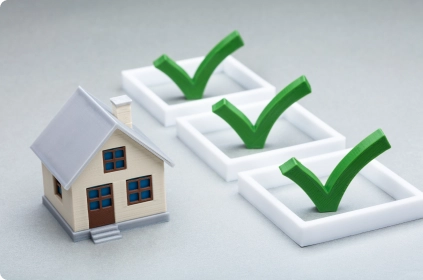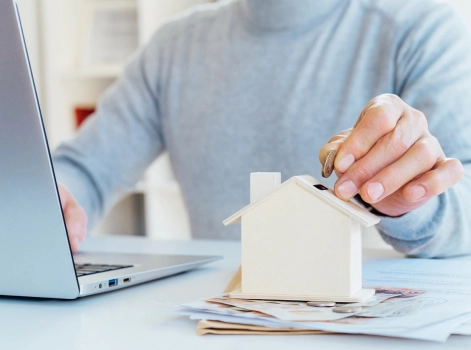Having the option to pay off your home loan is a major milestone for most homeowners.
And if you’re really close to doing that then congratulations, however, before you pop the champagne corks, you need to consider the benefits and drawbacks of paying off your mortgage.
Why You Shouldn’t Pay Off Your Mortgage Fully?
The single biggest reason to keep your home loan account open is easy access to funds so you can:
- Increase the value of your property by renovating your house.
- Purchase an investment property or your next home and claim tax benefits where you can.
- Consolidate your debts given that home loan interest rates are cheaper than personal loans and credit cards. However, be wary of compounding interest as with debt consolidation the term is extended albeit at a cheaper interest rate.
- Build your super and save for retirement.
- A home loan is often the cheapest credit you can get as such it should be the last debt you pay off after your other debts such as credit cards, personal and business loans.
- The mortgage interest repayments for rental properties are tax deductible.
- An added benefit of safekeeping of the property title with the bank.
Unless you’re close to retirement, the equity in your home is better off being invested and earning a return.
There are several other reasons why you shouldn’t close your home loan account:

Make Informed Decisions With The 360° Home Loan Assessor
- Determine how much you can contribute as a deposit
- Get clarity on the total costs of buying a home
- Explore interest-rate options based on your situation
Why You Should Pay Off Your Mortgage Fully?
Now that we’ve looked at the benefits, let’s look at some inherent drawbacks of not paying off your mortgage fully:
- You’ll pay more in interest over the life of the loan.
- You’ll have mortgage repayments and if any unforeseen event arises you may not be able to repay the home loan.
- There may be a small yearly fee for an offset account, redraw facilities and ongoing fees that apply to your loan.
- You may be tempted to use the equity and redraw the extra repayments.
- If you are not closing off the loan, the property title is still with the bank.
What To Consider Before Paying Off Your Mortgage Fully?
If you’re not financially savvy, then it may be prudent to repay your mortgage in full and close it. So, as not to be tempted by the equity available.
However, if you’re good with money then leave a small balance of say $500 owing and switch the loan to interest-only (IO), this will allow you to have access to a large sum of money in less than 24 hours to take advantage of sudden market swings.
It’s also the best insurance policy you can have against unforeseen life events.
If you stay on a principal and interest repayment plan then the next repayment will close your loan account, you can avoid this by switching to interest-only (IO).
However, be careful as interest-only usually has a slightly higher rate and you aren’t actually paying off the loan.
Should I Pay Off My Mortgage Completely If I’m Retiring?
You won’t be able to get a home loan after you retire unless you have another source of income such as rental income, dividends or super income.
By keeping your home loan open you keep this easily accessible equity available in case you need it.
However, if you don’t have a source of income and you redraw on your home loan then you may find yourself in trouble as you cannot make the repayments.
You can drawdown and use the money when needed to:
- Buy shares
- Buy an investment property
- Renovating
- Helping a family member
- Buying a car, etc
How Do I Discharge My Mortgage?
When you’ve decided to close your home loan and get your title back, it’s a simple process.
You can sign the lender’s mortgage discharge form, fill in your details and submit it to the lender.
Typically, a $350 fee is charged by the lender when discharging a mortgage along with a $200 discharge fee from the government.
Do You Have Enough Money In Your Offset To Pay Off The Home Loan?
Once you’ve saved up enough money in your offset that’s equal to your home loan balance, you have a choice; you can either continue to make your repayments towards the principal or use the funds to invest or pay off the mortgage completely.
There isn’t a right or wrong option here, let’s look at a couple of options.
Option 1
Let’s say Dave and Lisa have a mortgage of $500,000 at an interest rate of 4% (P&I) and are committed to paying off the mortgage.
In 10 years, they would have paid off roughly $100,000 off their home loan.
However, let’s say they borrowed money using the equity in their home to purchase an investment property worth $500,000.
In 10 years, even with a conservative growth rate of say 7%, their investment property will have increased in value to a cool $1 million.
They are better off by $500,000 simply by investing instead of paying off their home loan.
The take away here is that if you had waited to pay off your home loan by 10 years, you are missing out on a decade worth of capital growth.
Option 2
Alternatively, if they put $100,000 in their offset account, most of the couple’s monthly repayment of $2,387 goes towards paying off the principal quicker.
They would have saved $172,000 approx. in interest over the life of the home loan and paid off the loan earlier by 6 years.
Both of these options have their own benefits and drawbacks and what suits you best will depend on your financial goals, risk appetite and retirement plans.
We recommend consulting a good financial adviser to discuss your financial needs and goals.
Find Out How To Make Your Equity Work For You
Speak with one of our specialist mortgage brokers for expert advice on equity loans by giving us a call
on 1300 889 743 or enquire with us online.
